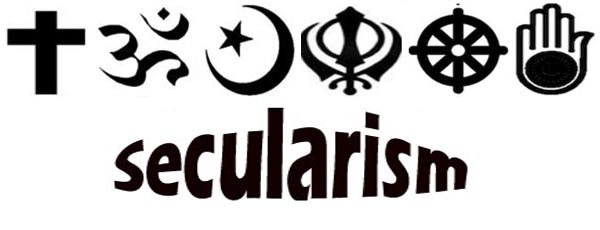The Supreme Court on Monday expressed grave displeasure at the state of religious affairs in the country and expressed pessimism at the prospects for secularism in India. According to the Court, though India is secular, it may not remain so for much longer. The necessity to resolve the conflict between religion and civil laws, in favour of the latter may be imminent.
In a public interest litigation, advocate Clarence Pais has pleaded for a grant of legal sanction to the decrees of divorce issued by ecclesiastical court or tribunal, through interpretation of Canon Law of Roman Catholics. Pais, former president of Catholic Association of DakshinaKanada in Karnataka, also requested the Court to issue a declaration stating that Roman Catholics cannot be prosecuted by any criminal court in India under s. 494 of the Indian Penal Code, without perusing the Canon Law first. Section 494 of the Indian Penal Code, criminalises the offence of bigamy.
While the division bench, comprising Justices VikramjitSen and C. Nagappan, disagreed with the petitioner, they pointed out that religious decrees cannot override codified law. However, Soli Sorabjee, appearing on behalf of the petitioner, repeatedly requested the Bench to consider the issue as an important question of law, essential for the pursuit and guarantee of religious freedom in the country. He pointed out that a great multitude of citizenry comprising Indian Christians are subject to Canon Law and are directly or indirectly, affected by the authority of ecclesiastical courts in matters of marriage and its dissolution. The Court, on the other hand, refused to accept the argument as if legal sanction be granted to the autonomy of ecclesiastical courts, it has a potential to set a dangerous precedent for other religions. The bench feared that it will give rise to a number of appeals for granting authority to independent legal institutions of other religions, which is untenable as legally sanctioned decrees can only be issued by courts of law.
The Court pointed out carefully, the distinction between the spheres of authority of religious faith and statutory law. It asked the petitioner to consider whether this Court can ask an ecclesiastical court to grant recognition to a marriage or divorce. Answering in the negative, the Court itself postulated that the civil laws of the land cannot be forced to recognise ecclesiastical courts.
Supporting its theorising with an illustration, the Court cited the case of “honour killings”. Pointing out its concerns in sanctioning self-style socio-cultural institutions, the Court observed that young boys and girls are ostracised merely because they do not follow the diktats of the society, which can be detrimental to the harmony between religious and individual freedoms.
Sorabjee raised concerns with the Court not granting recognition to marriage and dissolution under the Canon Law, which may open a Pandora’s Box exposing male Roman Catholics to persecution for the offence of bigamy. But the Court sought to allay his concerns by stating that cases for relief in such a situation can be filed in civil courts, without resorting to remedies in ecclesiastical courts as they meant to propound on issues concerning religion only. The Government has been given four weeks to file a response to the petition, which may result in an important ruling of the court favouring the dichotomy of religion and law.
by Siddhartha Singh

